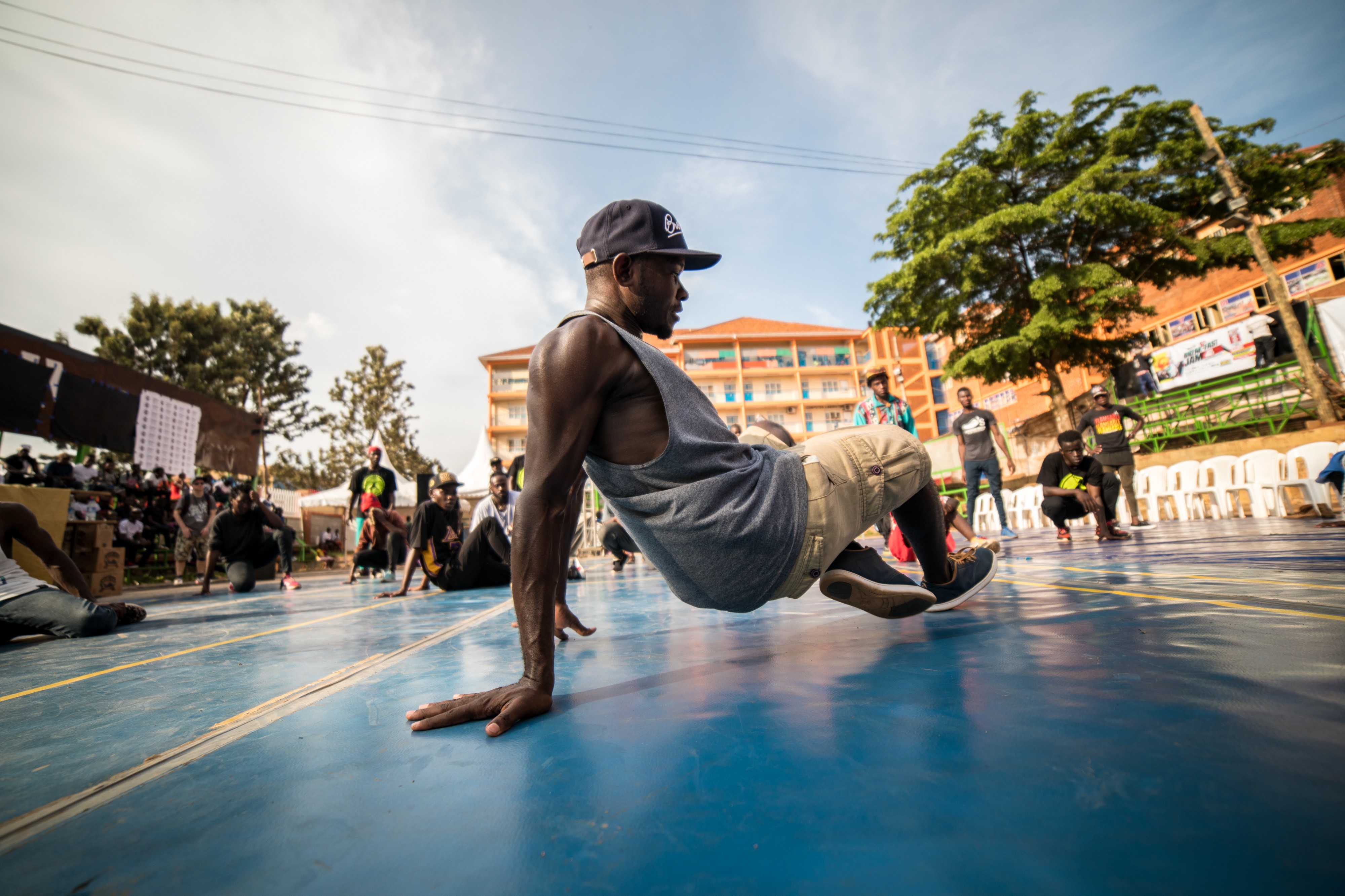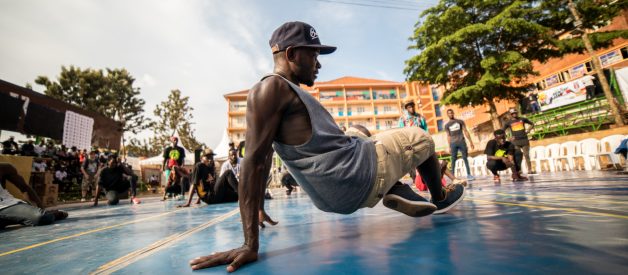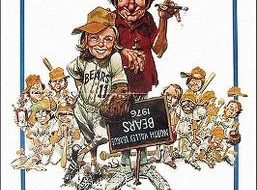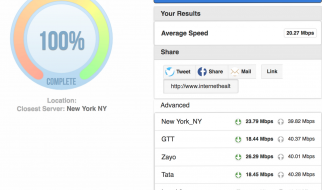Based on my experience becoming an expert in many skills
 Photo by Slim Emcee (UG) the poet Truth_From_Africa_Photography on Unsplash
Photo by Slim Emcee (UG) the poet Truth_From_Africa_Photography on Unsplash
No matter what you may set your sights on doing or becoming, if you want to be a contender, it?s mastering the ability to learn that will get you in the game and keep you there. -H.L. Roediger in Make It Stick
Knowing how to actively grow and develop a skill is a skill in itself, and if you understand how the principles of learning work, it will be easier to learn any new skill in the future.
It is therefore worth putting some effort into understanding this process, as it can save you many hours of practice and frustration.
The metaskill of learning how to learn is in my view one of the most important skills you can have, as it can be applied to anything you want to learn. Here are seven ways to improve your skill learning:
1. Take action ? Start learning a skill
The greatest failure of all is the failure to act when action is needed. -John Wooden
Learning a skill requires that you actively practice it. So, if you only read about how to get better at learning skills, you are gaining knowledge. It?s when you apply it that you improve the skill of learning skills.
The best way to improve this skill is therefore to have an ongoing skill learning project. Working on a skill can help you understand the principles of skill development and get a deeper understanding of the process of learning.
If you need inspiration to start learning a new skill, I can recommend starting your own 100 hour challenge, which involves trying to improve a skill as much as possible with 100 hours of practice.
The 100-hour Challenge
My quest is to improve as much as possible in 100 hours in various complex skills, such as learning a language, playing?
medium.com
What is a skill?
?A skill? can be many type of activities; for example juggling, dancing, playing chess, speaking a language, cooking?
medium.com
2. Breaking down a skill
The most effective way to become better at a complex skill is one sub-skill at a time.
Every skill consists of several sub-skills. To improve faster it is useful to find the sub-skills that are most important and focus on improving them. It is normally most effective to improve a few sub-skills at a time, to not make the learning experience overwhelming.
To break down a skill, you can for example use the skill tree method, described in this article by Danny Forest, or create some sort of mind map or list that includes all the sub-skill you can think of. Always try to learn the most fundamental sub-skills first.
The Skill Tree Principle: An Innovative Way to Grow your Skills Efficiently
How SkillUp Trees can make you more aware and guide you in your skill learning
medium.com
Breaking Down a Skill and Practicing Effectively
How to break down a skill and decide which parts to practice to develop effectively
medium.com
3. Always look for ways to improve
If you don?t search for what will make you better, you will never find it.
You can cook for 50 hours without becoming a much better cook. There are many examples of restaurants that serve mediocre food, even after decades of existence. As they are not looking for ways to improve, they never will. Only by searching for and experimenting with new ways of doing things, can you improve. This requires effort and attention, and without these two ingredients, it is very difficult to improve any skill.
If you are serious about improving, it is useful to self-assess how you can develop your own game or skill. It is also beneficial to reflect on how each practice session went after it?s over and think of ways to improve it for next time.
This is a very different mindset from just showing up at practice and following the instructions from a coach. If this looks like your normal practice routine, try to be mindful of why different exercises are done and certain instructions are given.
4. View challenge as a great opportunity to learn
The real goal isn?t practice, it?s progress. Never mistake mere activity for accomplishment. -John Wooden
I often used to shy away from learning opportunities, as I was embarrassed that I couldn?t perform certain skills. This has changed quite a bit, as I now know that when something feels challenging is when I?m improving my skills the fastest.
Anything that feels too easy, is probably things that you already know how to do, and you are not likely to learn much from it.
Eustress is a word that well describes how you should feel during practice. Eu-, is a greek prefix for ?healthy?. ?Healthy stress? then is something that push you to exceed your limits, do things that you didn?t think you could do, and expands your sphere of comfortable action. This type of stress is helpful and a stimulus for growth.
Be willing to take risks, and put yourself in challenging situations, where you may have to go through an embarrassing period of not being very good, but where you eventually will improve the performance of a particular skill.
Desirable Difficulty ? Why you should make learning more difficult on purpose, to improve your?
We often think that we are learning best when what we are doing is easy.
medium.com
5. Find the optimal time of day to practice
High performers practice most frequently during the morning, when independent research indicates that individuals have the highest capacity for complex, demanding activity during the day. -K. A. Ericsson
Putting in quality practice requires a lot of attention and effort. It is therefore important that you plan to do your practice at a time of the day when you are rested enough to put your full focus towards the task you are learning.
Improving your skill requires that you are at the edge of your current abilities and when you are tired you are not able to push yourself to perform at this edge.
Professionals will plan their whole day around their practice, and will plan their practice time during the hours when they are most alert. This is often in the morning, but can vary from person to person.
If you plan to practice more than once a day, it is usually good to separate the practice times with a longer break in the middle. Eating and hydrating well and relaxing your mind by doing a different activity can be useful. Also taking a good rest has been shown to be very beneficial for learning (many high performers take a nap during the day).
Deliberate Recovery ? Improve Your Skill Development by Taking a Rest
Even Olympic athletes don?t practice nonstop. They carefully alternate between periods of intense exercise and intense?
medium.com
6. Create a learning environment that facilitates practice
Human abilities can be grown, the environments should help people grow these abilities and fulfil their potentials.
A good learning environment makes it easy to start practicing your skill and contains few distractions.
If you want to learn how to play the guitar, it?s probably better to have it sitting out in the living room, where you will see it all the time, rather than in the back of a closet. You want to make it as easy as possible to start practicing.
A good learning environment requires that you have full focus on the learning, so it?s best to remove any sort of distraction to facilitate practice. If you can, think of ways to prevent your phone, friends, or family from interfering with your practice.
Try to find a place to practice that is easy to reach. If you have to sit through traffic for an hour to get there, you will be tired when you arrive and you?re less likely to go to practice in the first place.
7. Pay attention
My greatest skill was being teachable. I was like a sponge. Even if I thought my coaches were wrong, I tried to listen and learn something. -Michael Jordan
Just because you are rested and alert, doesn?t automatically mean that you pay attention during practice. To learn a skill fast, you need to be fully focused on the task at hand and the feedback from what you are doing, your coach and your own interpretation of your actions.
This means that socialising and chatting about what happened on the weekend during practice, will take your attention away from performing at your best. If you want to improve, it is better to leave these type of discussion for before or after the practice.
Rather you want to be focused on the small corrections you can make to perform better, and constantly try to focus on the details that can make you improve at the skill you are learning.
Pay Attention ? if you want to improve your skill development
If you want to learn anything, you need to pay attention.
medium.com
Create your own optimised way of learning
There isn?t one ?right? way to learn anything. Just because it worked for someone else, does not guarantee that this is the best way for you to learn. Try experimenting and testing out a variation of ways.
World class performers can be an excellent source of inspiration, but they are sometimes so far ahead of you, that it can be difficult to apply what they are doing to your situation.
It can therefore be beneficial to also look for inspiration on how to practice from those that are just a few steps ahead of you. They have just worked through the struggles you are facing, and may be well suited to help you with your specific challenges.
Check out Appendix A for a full list of what an optimal learner does.
Take home message
Understanding how we learn skills can take a lifetime to fully master. But, in my view, it is a topic well worth studying to get the most out of life.
Getting a better understanding of how we learn effectively can be applied to any future skill you want to learn, from climbing to cooking, learning mathematics or painting a picture.
Learning is challenging. Be sceptical when people suggest incredible short cuts to get somewhere. That?s not how learning usually works.
Learning can also be fun, exhilarating, and gratifying. When we understand how to develop our abilities we strengthen our conviction that we are in charge of them.
Thanks for reading, sharing, and following! 🙂
Appendix A. The Optimal Learner
Here is a short list (which ended up being quite long:p) of what it takes to become an optimal learner (longer article coming soon).
The optimal learner?
- Is a master at deconstructing skills and can identify the most essential components of a skill.
- Takes action; you cannot learn a skill just by reading about it.
- Understands the principles of deliberate practice.
- Has a growth mindset (believes she can learn).
- Is good at objectively assessing their strengths and weaknesses.
- Is good at self-correcting (learning from mistakes).
- Has the ability to take in critical feedback.
- Is extremely focused during practice.
- Is excellent at deliberate recovery.
- Puts in a lot of effort.
- Focus on improving one thing at a time.
- Focus on the long run.
- Plans when and where they will practice.
- Prioritise and find time for practice.
- Creates an optimal practice environment.
- Takes responsibility for their learning, rather than making excuses.
- Always looks for ways to improve.
- Create their own optimised way of learning.


